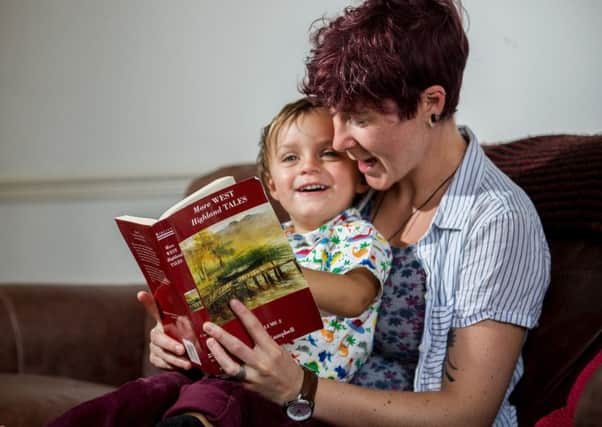Scottish storyteller calls for more LGBT people in folk tales


But now a professional Scottish storyteller is calling for LGBT people to be represented saying they have been ignored and “written out” of these stories for centuries.
Lauren Bianchi says LGBT people are seldom heard of in folklore and it is time to update stories and create new ones portraying positive images of the community.
Advertisement
Hide AdBianchi who is giving a performance in Edinburgh’s Fig Tree Bistro on 29 September entitled Queers & Queens: The Quintessential Story, said: “It’s always been really clear to me about the lack of LGBT in folklore. But it crystallised when I had my son Avin.
“I’m in a same-sex relationship with my partner Sarah Gurney and I wanted Avin to see other families like his. The representation in children’s books is getting better, but not in folklore.”
Bianchi then carried out her own research but said she only found three or four stories with some sort of LGBT representation in them.
One of those was in More West Highland Tales, Volume Two (1860) by JF Campbell which includes the story “The Girl and the Robbers” about a woman dressed as a man who falls in love with another woman also dressed as a man. After all is revealed they lead a happy life together.
“LGBT people have always been around and were absolutely there when these tales became immortalised when first written down and became mostly the version we know today. They need to be named now,” said Bianchi who works at the Village Storytelling Centre in Glasgow.
“But while stories change in the telling over time this aspect hasn’t altered.
Advertisement
Hide Ad“So it became important for me to change and adapt stories for modern representation so people are not mocked.”
Dr Carole Jones, lecturer in English at the University of Edinburgh, said Scottish tales, with their frequent theme of transformation, were ideal material for Bianchi.
Advertisement
Hide Ad“LGBT people, to my mind, have a right to see themselves represented in the narratives of their country and community and this enhances the equality and diversity of the community and all the issues of social justice that go along with that.
Jones added: “I hate to use the word tolerance, because we don’t want to be ‘tolerated’, we want to be equal. And this is an important part of creating that equality.
“The Scottish tradition lends itself particularly to such re-writing as it is full of themes of transition, transformation and boundary crossing.”
Donald Smith, founder of the Scottish Storytelling Centre and director of TRACS (traditional arts and culture Scotland), said traditional tales have always been radical but said they needed refreshed for contemporary audiences.
“It’s a mistake to think that traditional or folk arts are naturally conservative in their sexual and social attitudes.
“There have always been dissident, minority voices and underground currents in folksong, storytelling and dance. But it takes contemporary artists like Lauren Bianchi to open these things out afresh and re-interpret the stories and songs.”